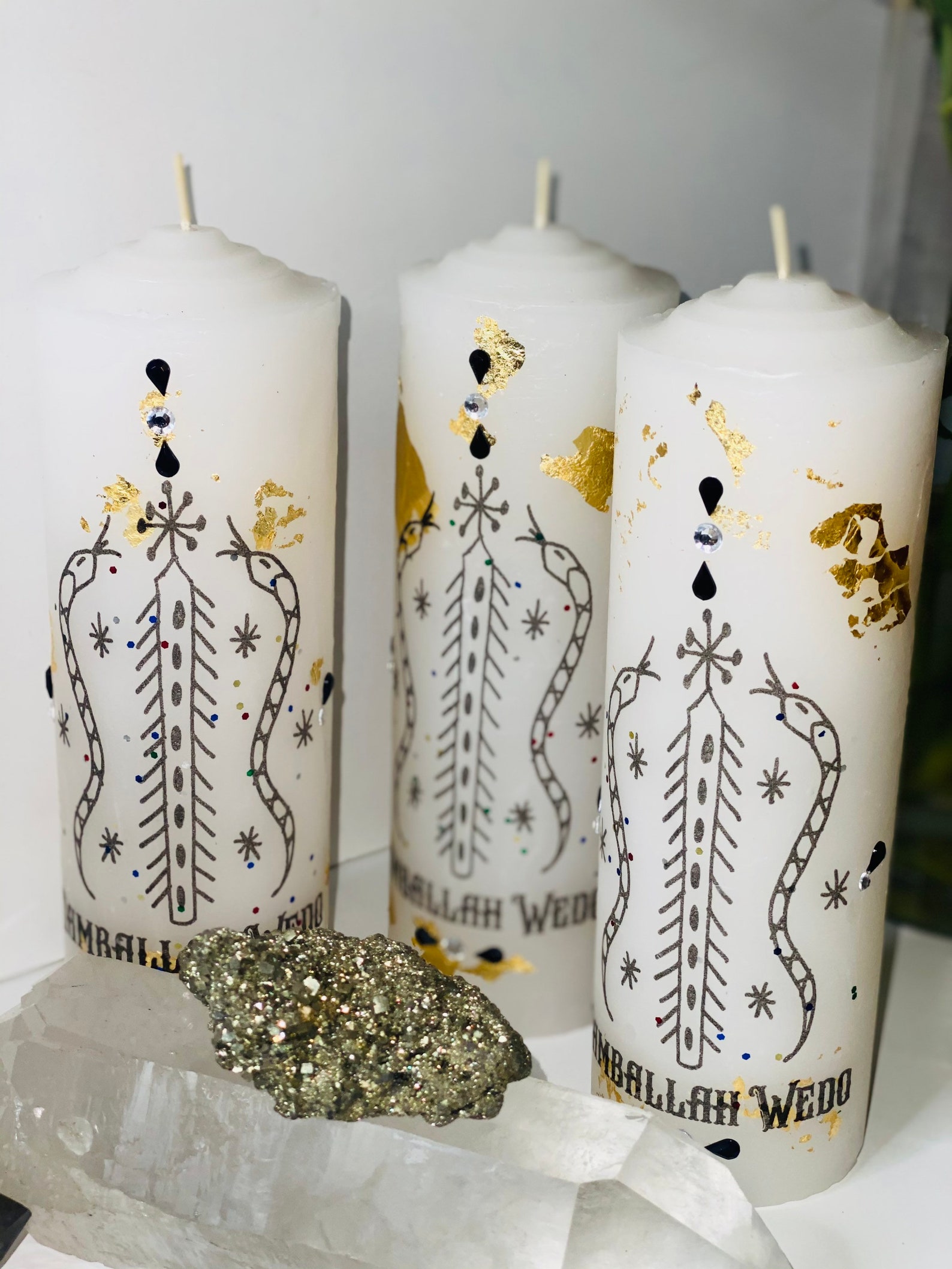

Ayida-Wedo (su esposa) también es representada como una serpiente, ella representa al arcoíris. Iconográficamente se representa como una serpiente que ordena el respecto de otras fuerzas y reside en el primer lugar en el altar haitiano. Damballa, también conocido como Damballah Wédo, en la religión vudú haitiana es un loa de la familia Rada que representa el principio masculino de la naturaleza.Erzulie Freda is his lover, although, once again, she may be considered his wife in some societies. Damballa's wife is Ayida-Weddo, although in some Vodou societies she is his sister, and in others Damballa himself after a different fashion. When he manifests in the Petro rites it is Damballa La Flambo. For example, as Damballa Tocan he is a spirit of the intellect. Damballa, like many other loa, is subdivided into different spirits who play different roles. However his offering par excellence is a white, uncooked egg on a mound of white flour. Offerings to him include milk, white foods and flowers, rice, coconut, orgeat syrup, and a perfume called lotion pompeia.
#Damballah wedo altar full#
Some peristyles maintain a basin full of water into which the possessed will plunge, to swim and cool off. His purity is such that it cannot be allowed to be exposed to impure or unclean things. A white sheet is laid down for him, and another waved over him to fan and cool him.


When a serviteur is believed to be possessed by Damballa during a ceremony, he or she moves on the floor like a serpent. His very presence brings peace, and he represents a continuum which is "at once the ancient past and the assurance of the future." As a serpent, and due to his extreme age, he does not speak, but may whistle or make a soft, hissing sound. Damballa is seen as benevolent and patient, wise and kind, yet detached and removed from the trials and tribulations of daily, human life. Damballa is usually syncretized with either Saint Patrick or Moses. As a serpent, he moves between land and water, generating life, and through the earth, uniting the land with the waters below.

By shedding the serpent skin, Damballa created all the waters on the earth. In others, being the first thing created by God, creation was undertaken through him. In those Vodou societies that view Damballa as the primordial creator, he created the cosmos by using his 7,000 coils to form the stars and the planets in the heavens and to shape the hills and valleys on earth. Damballa is said to be the Sky Father and the primordial creator of all life, or the first thing created by Gran Met. He is traditionally portrayed as a great white serpent, originating in the city of Wedo (Whydah or Ouidah) in modern-day Benin.


 0 kommentar(er)
0 kommentar(er)
